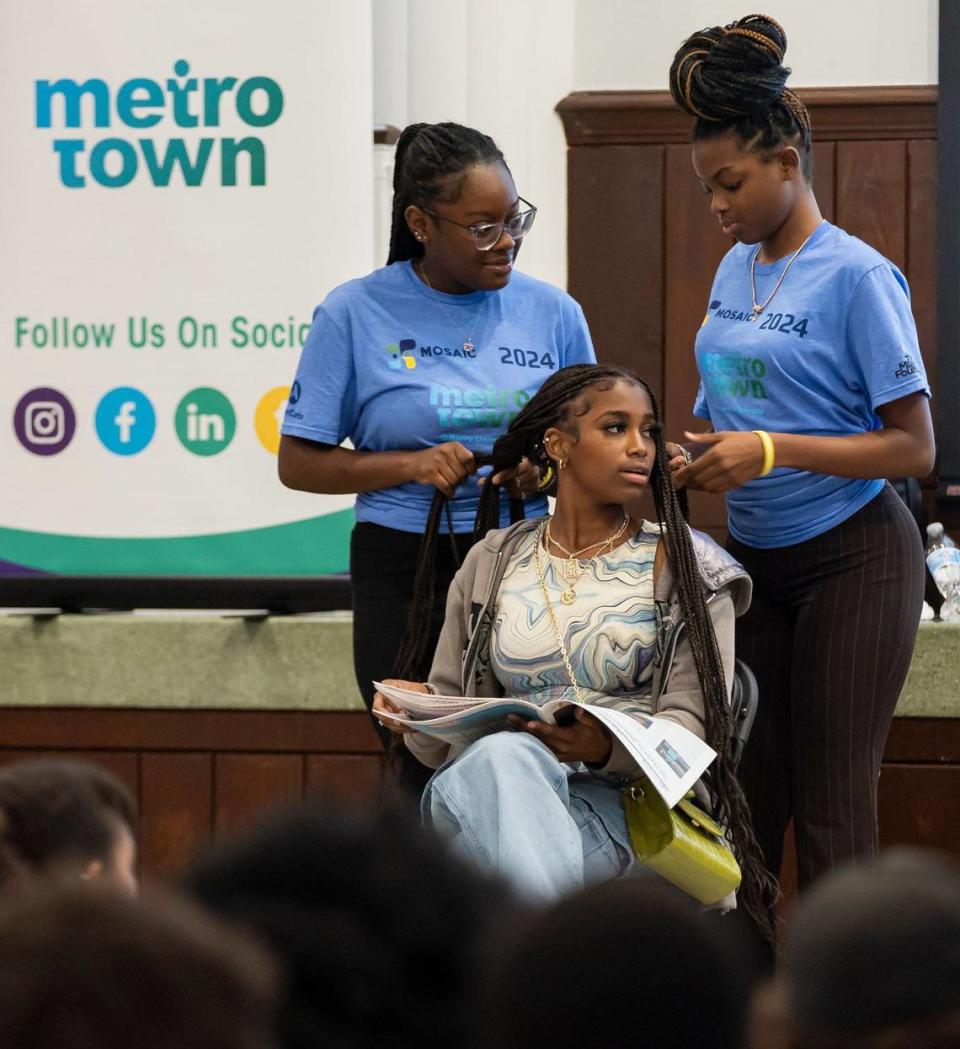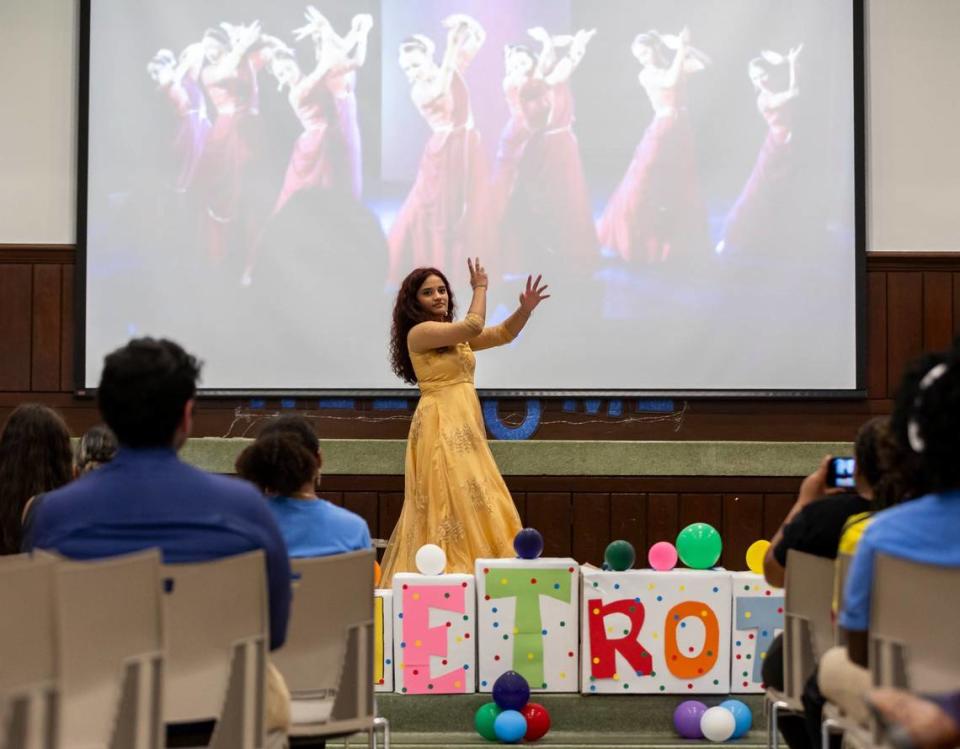This summer camp in Miami is a place where conversation about diversity isn’t taboo
Like other summer camps, students at MetroTown spend time away from their families to socialize and meet kids from across the Miami-Dade area. But this isn’t just any summer camp.
The campers, or “delegates” as they call themselves, spend six days diving into conversations that could be deemed taboo, particularly in the state of Florida
Delegates engaged in conversations, panels and activities about prejudices, racial stereotypes, biases, racism, ableism, sexism – all the isms – and how to work on overcoming them.
The premise of the camp was created back in the 1960s by the National Conference for Community and Justice to use dialogue to resolve conflicts in communities.
The camp’s dialogues provided a safe haven for students to talk about race, sexuality and religion, topics that Florida legislators have sought to suppress in schools.
Just two weeks ago a panel of three federal judges heard arguments in the case against Gov. Ron DeSantis’ Individual Freedom Act, or “Stop WOKE” Act, a set of laws that seek to limit the discourse about race by prohibiting speech in schools and workplaces that could cause students and employees to “feel guilt, anguish, or any other form of psychological distress” due to their race, color, sex or national origin. The law has not yet taken effect because of the ongoing litigation. But if it does, camps like MetroTown will be one of few spaces teens can have these conversations.
But at MetroTown, all conversations are allowed, even the uncomfortable ones.
“We got a lot of people’s perspectives, and it kind of transformed, I feel like that transformed the way that we think about each other,” said Orlee Jean Jean Francois, 15, a student at M.A.S.T. Academy @ Homestead.
The camp was previously held at St. Thomas University in Miami Gardens but this year was held at Barry University, which hosts the camp free of charge, in alignment with two of their core commitments: inclusive community and collaborative service. The 50 delegates stayed in on-campus housing during the six days of camp. The executive director, Matt Andserson, reached out to schools and students within his network and invited them to apply to the camp.
Every day, delegates would tackle a new concept through interactive activities and discussions. One day, students attended a panel on ableism featuring a MetroTown staff member, Reneé O’Connor and Barry University faculty member Gabriel Boucani.
After, delegates were broken into small groups to ask each other about their experiences with ableism. At the end, there was an exercise on how to appropriately assist people with blindness.
Other days consisted of skits illustrating the effects of classism, ageism and religious oppression.
On Thursday, delegates hosted Culture Night, inviting the community at Barry University to get a glimpse of the conversations they had throughout the week.
Broken into groups based on race and ethnicity, delegates performed skits and poetry about the racial stereotypes and conflicts within their own communities.
The Hispanic delegates created a game show skit called “La Chancla”, which explored the challenges of poverty and politics in countries like Cuba, Puerto Rico and Colombia.
The African American group titled “Boho Braids and Fades,” put on a skit about the evolution of Black hair with a shout out to Madam C.J. Walker who created Black hair care products in the late 19th century.

A group titled “The Shades of Freedom ‘‘ performed a poem about how Black people in America are often grouped by race without acknowledgment of the African Diaspora and the cultures within.
Ashna Paudel performed a dance and a poem called “Asian Narratives,” and said the camp was engaging, informative, and insightful. This fall she’ll be a rising freshman double majoring in biology and policy with goals to work in public health care.
She pointed out the importance of considering the “isms,” like ableism, sexism and racism, especially for her future career in public policy. Learning about everyone’s culture and what makes them unique has armed her with more passion to make healthcare more inclusive, she said.
“Once I came here I got the chance to see it in person, like to see people’s experiences and put myself in their shoes,” she said.

This year, some delegates returned as peer counselors and advisors to assist staff with hosting activities such as the ableism panel that took place on the third day discussing how to make society more inclusive for those with visible and non-visible disabilities.
Corey Sykes, 20, is a rising senior at Albany State University, a historically Black college in Georgia. Before going off to college, Sykes was also a delegate.
It was at MetroTown that he began to understand his power as a Black young man in society, especially in his social status compared to Black women.
“It’s harder to be Black without actually understanding your Black identity,” he said. “I came back to help other Black Americans that come to Metrotown deal with and understand their gender and their racial identity.”
Anthony Cadrera, a 16 year old, said the advisors and peer counselors like Sykes really set the tone of the camp, bringing him and his peers out of their shells.
“Even though we all came from different cultural backgrounds, especially with the skit… you could very much notice that we all trusted each other and had a lot of fun in the process,” he said.


